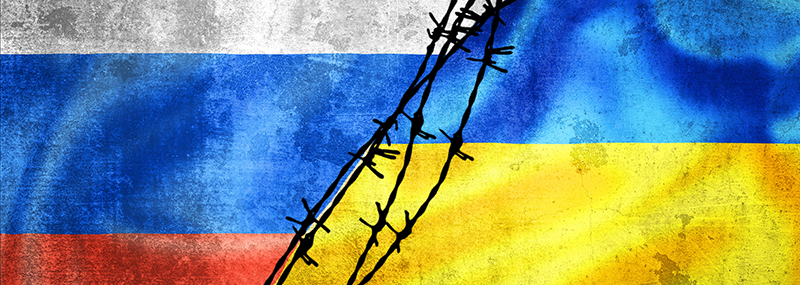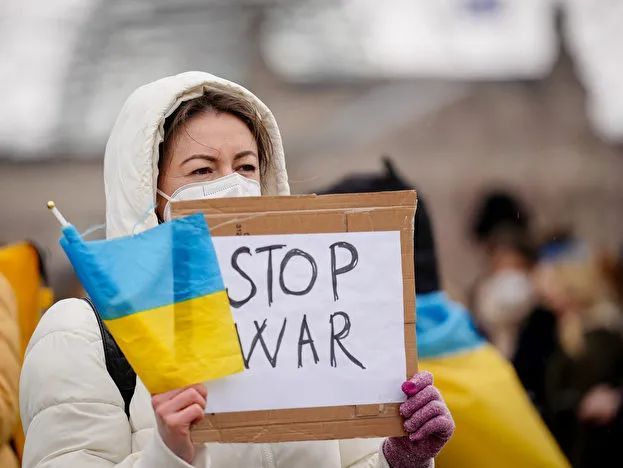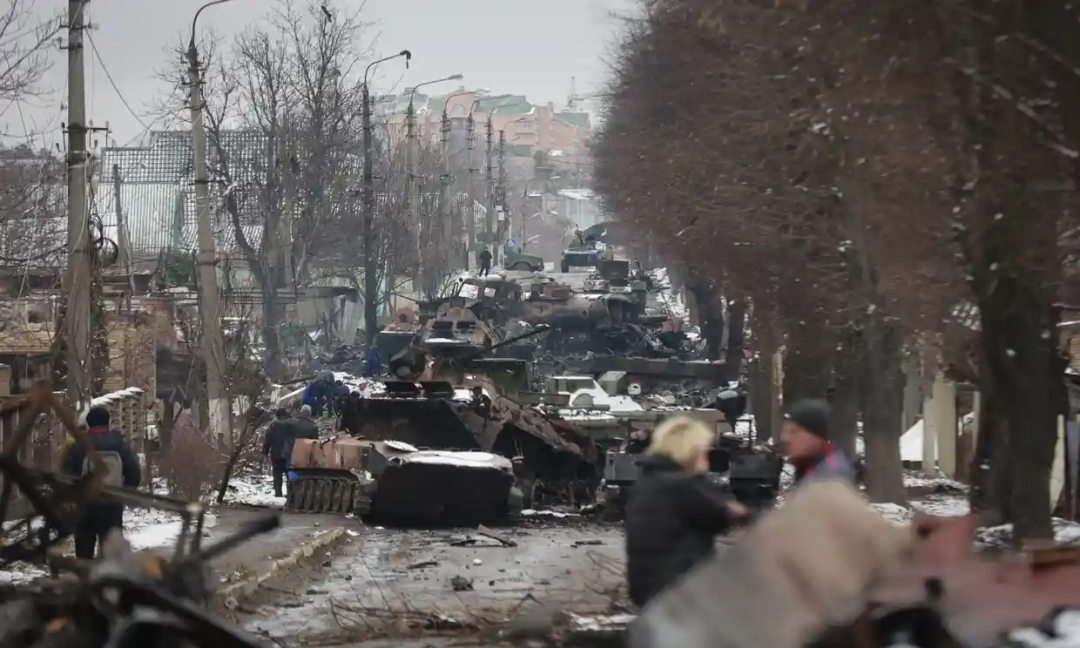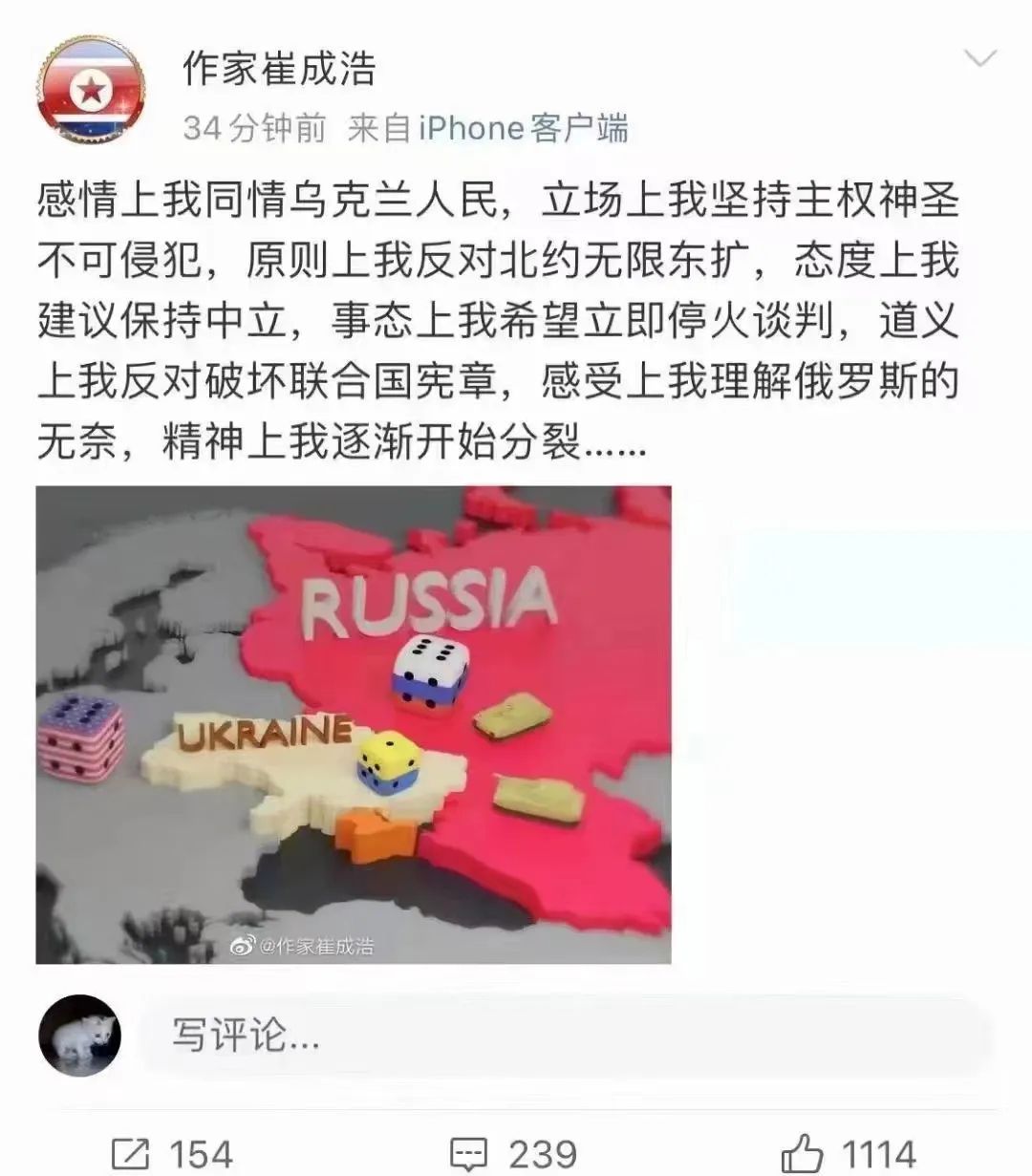
How should we pay attention to the situation in Ukraine?

A few days ago, a reader wrote to me, she said that she was originally a person who didn't care much about politics, and even less about international politics. It seemed that "it is always possible to use China as the smallest unit to arouse a special passion", but It is precisely because of this that she is a little confused about the atmosphere of public opinion since the recent war between Russia and Ukraine.
As a person who is not very enthusiastic about this, she can hardly feel any actual political life in her daily life, and there are many things that can't be done, can't even think about it. ”. All participation in international politics is actually just "watching" through the information medium, and if these are ignored, it will not have any impact on personal life.
She observed that the vast majority of Chinese people neither have any vital interests in this, nor do they want to devote themselves to it, and even more knowing that their personal views have no influence on promoting the change of the country's strategy, they are only "discussing the international situation"—— Or, "to enjoy the situation".
So the question is: In this case, why do many people have such a strong enthusiasm and even a strong "sense of participation" when talking about international current affairs? Why do they quarrel, hate and even abuse each other because of the so-called "different political ideas"?

She asked a good question. I think it may be like this: Chinese people have a strong interest in politics, and this desire is seriously suppressed in domestic politics. At this time, such as the Russian-Ukrainian war, a distant event that most people do not know the background of, can actually It is very convenient to project their own emotions, because the conclusions they draw with half-knowledge can't be falsified anyway, and the scale of discussion can be freer, thus obtaining a kind of "joy of speaking".
That is to say, people themselves do not expect any consequences of this speech, but it is because of this that they can enjoy it. It might be more accurate to interpret this as "entertainment" rather than "political participation", as the reader has noted, "Most people pay attention to politics as much as watching a few more TV shows or football games has an impact on their lives. ".
It's probably some kind of social need too, like a harmless topic that just happens to spark a lot of people talking. In this sense, the debate on this war in the domestic public opinion field reflects a common social phenomenon: people are not concerned about in-depth understanding, but self-expression.
The sinologist Fei Zhengqing once teased, and academic figures are often unavoidable:
People tell you all kinds of things, and you don't even have a chance to speak. That night, as long as I talked about the role of the countryside in Chinese society, everyone would rush to talk about their rural issues to show that they didn't know much about it.
Of course, professionals are somewhat different: they know, after all, that the smaller the area of focus, the more likely they are to know more than everyone else, so experts tend to be "knowing more and more about smaller and smaller areas. many" group of people.

However, ordinary people can ignore this, even if they know nothing about the background of the Russian-Ukrainian conflict, they still have the courage to make judgments. Someone on Weibo said this point extremely meanly and vividly:
Regardless of which side the conclusion supports, some middle-aged and elderly men talk about the unequivocal and unequivocal strength of the Ukrainian war situation, as if he is the second uncle of the Jade Emperor and has just heard some exclusive gossip from heaven.
Ironically, opposing sides often use the same language to attack each other. I saw a lot of people in the WeChat group angrily denounced those who support Ukraine (which is equivalent to "supporting the West") as "scholars mistaken for the country", on the grounds that if Russia falls, China will be next; and another Scholars believe that Mearsheimer, who opposed NATO's eastward expansion, was "a scholar who misunderstood the country" because "China is the biggest beneficiary of the disintegration of the Soviet Union, and it is better for Russia to disintegrate further." This kind of staggering seriousness, as if these discussions are really enough to affect the state, can "scholars" have the opportunity to "mistake the country"?
People with different positions sincerely believe that their position is truly moral and beneficial to the country. Many people said awe-inspiringly, when this case was opened, the international order was severely damaged, the moral foundation was of course no existence, and ultimately it was not beneficial to China. Those "Russian fans" only have interests in their eyes, do they still have conscience? But the other faction also sarcastically said, "Kongzhi" knows how to dance with Western public opinion, you have taken money to speak for it, do you still have a conscience?
Such an argument is seldom informative because it relies not on arguments but on the superiority of moral positions to refute the other side. It's a bit like an attitude towards ghosts and spirits: everyone has a set of unquestionable and irreconcilable beliefs about them, even if they haven't actually seen them. Therefore, the question is not "how can you be so blunt when you don't know", but on the contrary, "it is precisely because of lack of experience and understanding that you can be more blunt" - even if it is a housework, if you The more you know about the parties to the dispute, the more you may feel that "this matter is beyond words."
A friend of mine told me a few days ago that after reading the comment section under my article on the Russian-Ukrainian war, he thought, "The composition of your public account readers is too strange", and it's normal for them to think differently, "What I'm curious about is those The proportion of people who don't have a donkey's lips and are very confident, is actually so high."
He guessed it might be this: "The kind of condescending public account that is easy to give a standard answer, often the readers are more like blind believers, and your open discussion attitude will easily attract people from all walks of life. Teachers."
Of course, there is also a technical reason for this: I hardly screen comments, and I believe readers will judge by themselves, but you can all imagine that some opinions, although very insightful, are easily deleted by platform administrators, so that they appear in the Although the comment area in front of everyone is still diverse, it is generally biased.

Diodes are particularly prone to occur in such major matters beyond our daily experience, because people lose their sense of proportion in judging it, and often can only constantly reiterate the moral principles they originally adhere to—not that these are unimportant, just for It is of little use to help us understand the complexities of a situation, because these moral principles are the foothold on which a person lives for many years, and hardly ever changes as the situation changes.
Moral principles are easily dogmatized, and at this point, people are no longer interested in discussing the facts themselves, but in occupying the moral high ground.
This is particularly evident in the field of public opinion. The most intense voices have raised all kinds of "facts" to prove the correctness and justice of their positions, while insulting the other party as "beautiful" or "Russian fans". Talk about all kinds of old and new hatreds not related to the Russian-Ukrainian conflict (eg, "How can you forget all the bad things the Americans/Old Maozi have done all over the world/to the Chinese").
Obviously, here, the position is black and white, without ambiguity. A friend said that he heard a few children talking about the situation in Ukraine during his lunch break and asked them what they thought about it. The children answered without hesitation: "Anyway, it's all Americans!" "Yes! My dad Said so too!"

After the results of the United Nations vote for Russia to withdraw, there are still people who insist that the countries that voted for Russia or abstained, together account for 70% of the world's population. It's a numbers game: in fact, there are only five countries in total that support Russia, including Russia itself.
This is also a dichotomy between the enemy and the enemy. The only difference lies in whether “those who do not condemn Russia are those who support Russia”, or “those who do not oppose sanctions against Russia are those who support the West”, but the middle ground is ruled out. Ironically, Stalin once said: "Those who disagree with us are those who oppose us." However, after the Soviet Union intervened in Hungary in 1956, the long-term Hungarian politician Kadar Janos put forward the opposite slogan: "Those who don't oppose us are those who agree with us."
There are often different reasons behind these positions. Most of the people I know are against the war, and their sympathy for Ukraine is second, not to mention their support for NATO and the United States. They are only infected by the charisma of Ukrainian President Zelensky. The most important thing is , this war of "the powerful bullying the weak" challenges their own moral foundation, making it difficult for them to approve.
Conversely, the reason why many people support Russia is that they support China in the end, because they worry that after Russia falls, China will be more disadvantaged when facing the West; An enemy is a friend"; there are some people who are Putin fans, as someone said, "Worship Putin, worship the 'fighting nation', for many people in China, like smoking, drinking, and playing games, it is actually a kind of lethality. Your own hobby."
Behind this seemingly black-and-white confrontation is actually a conflict between many principles, reflecting the discomfort of a society with relatively single values when suddenly faced with complex events. More typically, a person may even hold different irreconcilable principles at the same time, resulting in a dark humorous "schizophrenia":

Seeing this, many people may be dissatisfied: "You have said so much, you are just saying 'we shouldn't pay attention like this', but you didn't say 'how should we pay attention'." What's more, sarcastic ordinary people's attitude of "focusing on" No." It seems to be the bad taste of the domestic intellectual elite, and it implies an unpleasant sense of superiority. Does it end there?
Don't get me wrong, I'm not trying to "express myself" too, it doesn't mean anything to me. What I'm trying to say is that all these noises in the public opinion field (which many of my friends think are disgusting and low-quality), if they don't help us understand the situation in Ukraine, at least help us understand how Chinese society is Reaction - Of course, it's also possible that some thoughtful people stayed silent.
Learning to use our own reason more can help us understand the world. Although I am doing my best to analyze, I also noticed that there are two opposing interpretations under the same article a few days ago. What really makes me regret is not that they call me "beautiful" or "whitewashing for aggression" , but after they read it, they only care about whether I am "pro-Russian" or "anti-war".
Many years ago, I was deeply impressed by a book "China Hands-The Tragedy of a Generation of American Diplomats". The book mentioned that "China Hands" such as Xie Weisi had been very forward-looking and judged that Chiang Kai-shek would fail, but derogated from it. Their people "couldn't see the difference between prophesying what might happen and wanting it to happen":
Many people in the United States who sympathize with the Kuomintang always feel that whoever says Chiang Kai-shek is doomed is probably hoping that Chiang Kai-shek is doomed, and probably helped to bring about his doom. In this way, what is originally an opinion on something is said to be an action; what is originally an analysis is said to be a confrontation; what is a conclusion is said to be a conspiracy.

It is necessary for us to think clearly: our concern about the situation in Ukraine, in the final analysis, is the activity of the mind, which is different from the real world - that reality has complex aspects, and a single point of view of the diode is dangerous, only by acknowledging , understanding this complexity, in order to overcome the self-righteous intuition.
I also know that, there is another point of view that if you don't know anything, just shut up. In the article I wrote a few days ago, How to Take Children to Interpret the Russian-Ukrainian War? "Underneath, some readers said, can't you let the children go? Others say that parents don't have much knowledge themselves, so why talk about it.
However, this point of view may be misunderstood: if you don’t talk about it, it doesn’t mean that the child does not know and has no doubts. This is just like "sex" in our life. Parents are reluctant to talk about it actively, children are curious, and parents also forbid it. "It's so young, I don't understand it yet, I'll talk about it when you grow up" - but in fact, this just covers up the problem .
The situation in Ukraine may be far away from us, and its impact is indirect, difficult to see and foresee at the moment, but the reaction to this situation itself can reflect the limits of the Chinese people’s political rationality. This is not only because it has sparked a conflict between principles, but it can also be seen that much of the debate is rooted in a series of unthinking premises, as well as a lack of individual independence and unclear definitions of self-interest.
When I say this, I don’t mean to say that there is the only correct attitude for “how to pay attention to international current affairs”. It requires people to understand each other and is reluctant at the moment, but I want to show that if you really want to understand more about the real world, it is precisely the It is necessary to examine our original beliefs, analyze more and judge less. Interest in following is a good start, but we can't stop there.
Like my work?
Don't forget to support or like, so I know you are with me..
Comment…